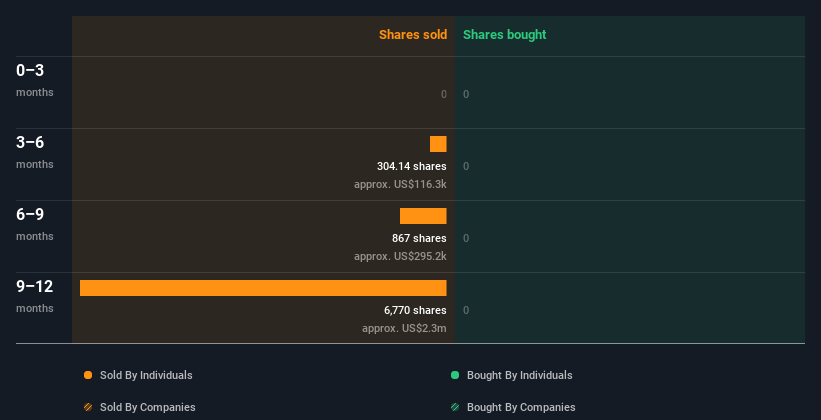Insiders At Moody's Sold US$2.7m In Stock, Alluding To Potential Weakness
The fact that multiple Moody's Corporation (NYSE:MCO) insiders offloaded a considerable amount of shares over the past year could have raised some eyebrows amongst investors. When analyzing insider transactions, it is usually more valuable to know whether insiders are buying versus knowing if they are selling, as the latter sends an ambiguous message. However, shareholders should take a deeper look if several insiders are selling stock over a specific time period.
While insider transactions are not the most important thing when it comes to long-term investing, logic dictates you should pay some attention to whether insiders are buying or selling shares.
See our latest analysis for Moody's
The Last 12 Months Of Insider Transactions At Moody's
In the last twelve months, the biggest single sale by an insider was when the insider, Mark Kaye, sold US$1.3m worth of shares at a price of US$341 per share. That means that an insider was selling shares at slightly below the current price (US$437). As a general rule we consider it to be discouraging when insiders are selling below the current price, because it suggests they were happy with a lower valuation. Please do note, however, that sellers may have a variety of reasons for selling, so we don't know for sure what they think of the stock price. It is worth noting that this sale was only 46% of Mark Kaye's holding.
Insiders in Moody's didn't buy any shares in the last year. You can see a visual depiction of insider transactions (by companies and individuals) over the last 12 months, below. By clicking on the graph below, you can see the precise details of each insider transaction!
I will like Moody's better if I see some big insider buys. While we wait, check out this free list of undervalued and small cap stocks with considerable, recent, insider buying.
Insider Ownership Of Moody's
Another way to test the alignment between the leaders of a company and other shareholders is to look at how many shares they own. We usually like to see fairly high levels of insider ownership. It appears that Moody's insiders own 0.1% of the company, worth about US$77m. We've certainly seen higher levels of insider ownership elsewhere, but these holdings are enough to suggest alignment between insiders and the other shareholders.
What Might The Insider Transactions At Moody's Tell Us?
The fact that there have been no Moody's insider transactions recently certainly doesn't bother us. We don't take much encouragement from the transactions by Moody's insiders. The modest level of insider ownership is, at least, some comfort. So these insider transactions can help us build a thesis about the stock, but it's also worthwhile knowing the risks facing this company. For example - Moody's has 1 warning sign we think you should be aware of.
If you would prefer to check out another company -- one with potentially superior financials -- then do not miss this free list of interesting companies, that have HIGH return on equity and low debt.
For the purposes of this article, insiders are those individuals who report their transactions to the relevant regulatory body. We currently account for open market transactions and private dispositions of direct interests only, but not derivative transactions or indirect interests.
Have feedback on this article? Concerned about the content? Get in touch with us directly. Alternatively, email editorial-team (at) simplywallst.com.
This article by Simply Wall St is general in nature. We provide commentary based on historical data and analyst forecasts only using an unbiased methodology and our articles are not intended to be financial advice. It does not constitute a recommendation to buy or sell any stock, and does not take account of your objectives, or your financial situation. We aim to bring you long-term focused analysis driven by fundamental data. Note that our analysis may not factor in the latest price-sensitive company announcements or qualitative material. Simply Wall St has no position in any stocks mentioned.
Have feedback on this article? Concerned about the content? Get in touch with us directly. Alternatively, email editorial-team@simplywallst.com

 Yahoo Finance
Yahoo Finance 
